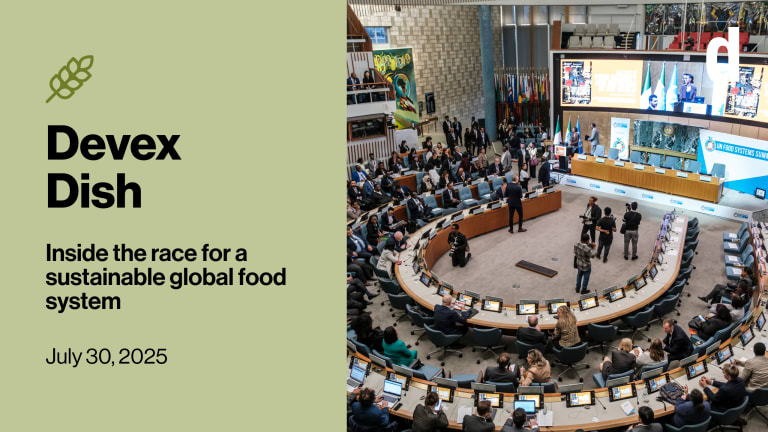With just over 500 days left for the Millennium Development Goals deadline to expire, it's important to think strategically to ensure that we lay the right foundation for the next set of goals — a set of sustainable development goals — that will take us to 2030.
When the MDGs were launched in 2000, we were thrilled to see this comprehensive set of goals reflect what we saw as the new human agenda. World leaders had recognized that issues of hunger and poverty are inextricably linked to a nexus of other human and environmental issues.
Though many were skeptical about the political will and possible financing to achieve the MDGs, they have proven to be a crucial organizing tool. This became quite clear to me when I participated in 2007 in a U.N. Economic and Social Council meeting in Geneva, where I witnessed parliamentarians from many developing countries asking for advice on how to hold their own governments responsible for achieving the goals at the halfway point.








